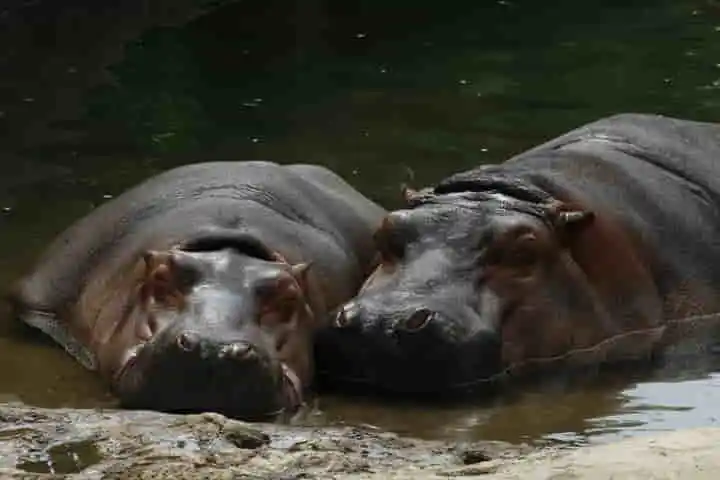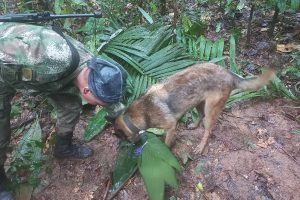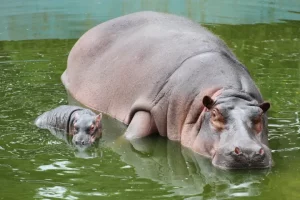When alive the Colombian drug lord Pablo Escobar, known as “The King of Cocaine”, spelled ruin and death for millions of people, especially the young, who got addicted to the substance and now that he is no more, he continues to trouble the wildlife authorities in Colombia. Wondering how and why, then read on…
According to a report in smithsonianmag.com, Colombian wildlife officials are seized of an unusual problem as they have to deal with a large number of big and invasive animals, hippopotamuses. Not native of the region, these creatures were brought rather smuggled by trafficker Escobar in the 1980s and now these African species are thriving in the tropical waters of the country and in turn threatening the local ecosystems.
Confronted with the ever increasing number, biologists have turned to injecting these animals with a contraceptive, to check their further growth in numbers according to a report in CNN. Till now, 11 of these animals have been treated and another 24 are to receive the immunocastration drug given through dart rifles.
In the statement released by the regional environmental agency Cornare, its veterinary doctor Gina Paola Serna Trujillo said: “It is a contraceptive that is effective in males and females.” The drug is used to control the number of wild horses and deer in the United States and so its wildlife officials too are helping in this exercise.
U.S. Department of Agriculture’s (USDA) Animal and Plant Health Inspection Service’s Douglas Eckery in the statement explained: “The mission is to use our scientific experience to help in human conflicts with wildlife and at the same time, preserve the environment we share.”
According to official data of Cornare there are nothing less than 80 hippos who can be found in three locations in Magdalena Medio – a place which situated in Colombia’s interior and borders the Magdalena river. Escobar had obtained four hippos and other exotic animals for his Hacienda Nápoles estate – a theme park located northwest of Colombia’s capital, Bogota.
Following Escobar’s death, his properties were seized and animals were sold but the hippos were left behind. Colombian biologist Nataly Castelblanco-Martínez, who is currently at the University of Quintana Roo in Mexico told BBC News: “It was logistically difficult to move them around, so the authorities just left them there, probably thinking the animals would die.”
Also read: In Africa many elephants are now born without tusks in nature's revolt against poaching
Things did not happened that way and instead this invasive species found perfect setting for procreating and with no predators their population bloomed. This in turned affected the environment and ecology. Eating huge amounts of vegetation, hippos’ faeces helped algae grow that led to reduction in oxygen levels in the water.
Further, being big in size and weighing 6,000 pounds, they posed danger to people. A local rancher was attached last year with his leg, hip and ribs being broken by the hippo.
The move to put them to sleep was not liked by people and they protested against it which was stalled by the court. Then Cornare personnel started castrating the males but not only was the exercise time consuming but also expensive.
Also read: Like humans, dogs too suffer from hyperactive impulsive behaviour
Consultations with officials from US helped the local biologists decide in favour of using the sterilization drug – GonaCon – developed by the USDA which put the animal into “a nonreproductive state”. This it does by controlling production of sex hormones, such as estrogen and testosterone. Through this method Cornare officials said they are hopeful they can “control the birth of this invasive species that is gradually dispersing throughout the Magdalena Medio.”




















